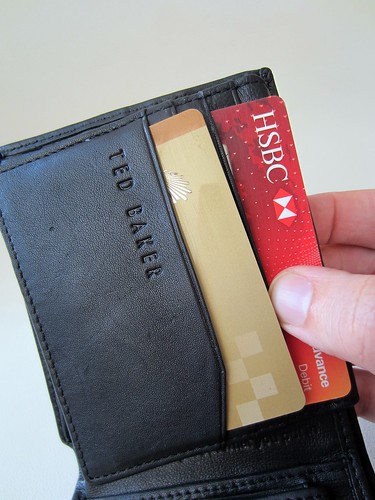Jump Start Your Credit History
You know you need a good credit history if you want to apply for a loan or credit card, but if you are just starting out and haven’t developed a credit history this can be hard to do. In some cases, having no credit is almost the same as having bad credit. Fortunately, there are some things you can do to start building your credit history.
Open a Retail Store Credit Account
Many retail stores offer special promotions to customers when they apply for a store charge card. This type of card usually is a little easier to get approved for than a regular credit card, but the card typically has a higher interest rate. Use a store charge card to make small purchases. This will help build your credit history, but have a firm plan in place to pay the amount back that you charge each month.
Get a Secured Credit Card

A secured credit card is similar to a regular credit card except the credit card company collects a security deposit that they then hold as collateral against the account. When you use the card the credit card company loans you the money, but the security deposit remains in place in case you don’t repay the amount you have charged. Since the credit card company is actually loaning you the money, they do report your credit activities to the credit agencies. An extra benefit to having a secured credit card is that many credit card companies that offer secured credit cards actually offer their customers a credit line once they have established a good payment record. See more about Secured Credit Cards
Student Credit Cards
These companies offer credit cards to students who haven’t had a chance to build a credit score yet, so they are often more lenient in their standards knowing that you might not have a credit history yet. Check out some Student Credit Cards.
-
Find a Co-Signer for a Credit Card
- The best way to start your credit history is to get a family member with good credit to co-sign a credit-card with you. Since you are the primary borrower, this credit card will appear on your credit history. It is important to realize, however, that since your family member is a co-signer it will appear on their credit history as well and they will be liable for any charges you make if you do not repay the card company. But if your family doesn’t trust you why should a bank? To avoid hard feelings later on have an agreement in place with your family member as to how you plan to repay the loan and keep the initial credit limit small so you can’t get yourself in over your head. Your goal is to establish a good repayment history so pay off the full balance evey month. This way you show the bank that you are responsible. Links to Credit Card Offers.
Make Your Payments On Time
Once you start to get a credit history, you must continue to pay your bills on time to maintain a good credit score. When paying your bills through the mail, send the payment out 7 to 10 days ahead of time to ensure that it has plenty of time to reach its destination. If you prefer to pay your bills online, check with your financial institution to find out how long it takes for the payment to be released from them and how long it will take to reach each creditor. You may find it helpful to set up advance bill pay. This way your bills are automatically paid out of your checking account on the same date each month.
Build Your Credit History Slowly
It is often tempting to apply for different credit cards once you know that you can get approved for credit. Unfortunately, if you apply for too many cards at one time it can actually bring down your credit score. Each time you apply for a credit card, the credit card company runs a credit check. Your credit file then receives a small “hit” and your score goes down a little. The only time this does not happen is when you are buying a house and you talk to different banks about financing it for you. As long as the inquiries all happen within the same period of time, the checks into your credit history all count as one inquiry instead of several.
See Also:
Best Buy Rewards Card – Yay Or Nay?
Do your credit cards work for you or is it the other way round
10 Tips for Managing Credit Card Debt
5 Don’ts for Your First Student Credit Card
Credit Cards That Pay You Cash
